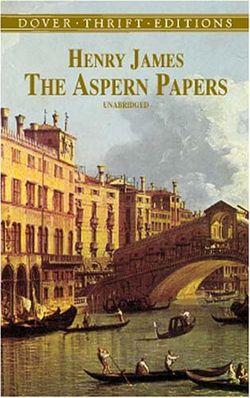 Many years -- even decades -- ago I was co-opted into the study of 'women's writing'. At first a little dubious, I soon became a fully paid up member, both in my working life (teaching, writing) and in my private reading. I never wholly abandoned books written by men, but by far the majority of my reading was of female-authored books. Initially I lurked in the Victorian period, then, largely owing to the influence of blogging friends, I started reading the wonderful Persephone-style reprints of mid-20th century women novelists, and that's where I've stayed for a few years now.
Many years -- even decades -- ago I was co-opted into the study of 'women's writing'. At first a little dubious, I soon became a fully paid up member, both in my working life (teaching, writing) and in my private reading. I never wholly abandoned books written by men, but by far the majority of my reading was of female-authored books. Initially I lurked in the Victorian period, then, largely owing to the influence of blogging friends, I started reading the wonderful Persephone-style reprints of mid-20th century women novelists, and that's where I've stayed for a few years now.
But suddenly my focus has shifted again, and now for the first time for many years I find myself wholly absorbed in the writings of people we learned to call Dead White [European] Males. As you will know if you've been on here much lately, I'm passionately involved with Trollope at the moment -- have also recently had a long fling with William Boyd (though of course he isn't dead, thank goodness). And, on my recent holiday in Sicily, I betook myself to Kindle on my iPad and while I was there I read The Aspern Papers. It didn't take very long to read, as it is what people call a novella (horrid term, in my opinion, but it does describe what it is, I suppose).
I knew all about this book, and thought in fact that I must have read it, but no, I had not, though it's always been of great interest to me. The reason I knew about it was that, though cunningly concealed in a fictional disguise, it is clearly based on known facts about the life of Claire Clairmont, Mary Shelley's step sister and Shelley's supposed mistress. I've always had a huge soft spot for Claire, as I said in my review of A Treacherous Likeness earlier this year, and clearly parts of that novel were influenced by this one by Henry James. Claire, who never married, had an affair with Byron and gave birth to his daughter, who died tragically at the age of five. But the love of her life has generally been supposed to be Shelley, and she lived in a rather curious household with him and her sister (to whom he was married) for a number of years. The rest of her life was spent mostly abroad, working as a governess or companion to various illustrious families. Her last years were spent in Florence, with her niece.
So much for the bare facts. Now, in this novel, Henry James creates a woman called Juliana Bordereau, who is clearly based in many ways on Claire. Ancient and reclusive, she lives in a crumbling palazzo in Venice (and how we do love those crumbling palazzos!). Her only companion is her niece, the shy middle-aged Miss Tina. But she is rumoured to have in her possession a collection of letters written to her by the long-dead and hugely famous poet Jeffrey Aspern. As the novel begins, the narrator, a scholar and admirer of the poet, arrives in Venice with the intention of winning Miss Bordereau's confidence and somehow acquiring the letters. He manages to persuade her to rent him a room, at an exorbitant price, and to befriend the timid Miss Tina, and at one point it seems possible that he will get his hands on the letters. But things go badly wrong, and his desire is eventually thwarted.
The plot is certainly interesting, but for me the real strength of this was the characters. There's the ancient, unpredictable Juliana Bordereau, of course, who always wears a large green eye-shade in public, said to be to conceal the terrifying beauty of her eyes -- something the narrator finally gets a chance to verify for himself. Then there's the narrator, who is never named. He is dishonest and self-deceived, constantly trying to convince himself that his duplicitous behavior is excusable in the light of his search for such valuable historical material. And then there's Miss Tina, at first so timid as to be hardly noticeable, who finally comes to hold the balance of power in the situation. She really comes into her own almost at the end, and though at first it seems necessary to feel sorry for her, her last action shows great bravery and she ends up as the real heroine of the story.
Henry James has the reputation of being a tough read, and so indeed he can be -- I was defeated last year by The Golden Bowl. But this story is highly readable, and highly recommended. I downloaded it for free from Project Gutenberg , and so could, and should, you. What are you waiting for?
